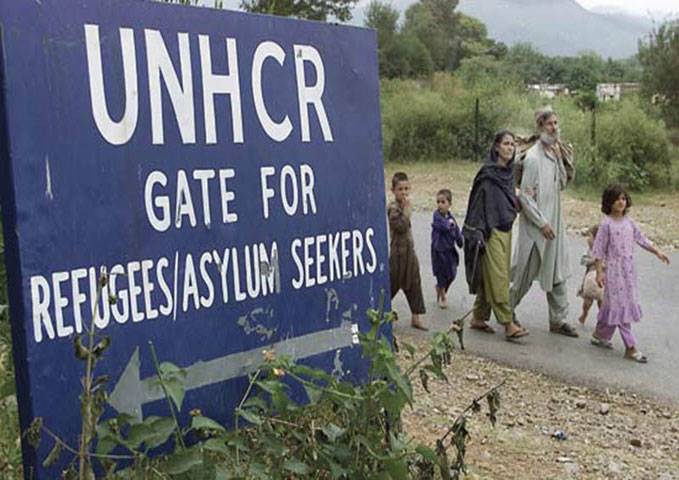ISLAMABAD - United Nations High Commissioner for Refugees (UNHCR) has introduced a first ever sophisticated centralised oxygen system in Fatimah Jinnah Chest and General Hospital in Quetta, Balochistan.
This first-ever centralised oxygen system was initiated and funded by the UN Refugee Agency through the Refugee Affected and Hosting Areas (RAHA) programme, which is equally benefiting both Afghan refugees and their host communities. The project was implemented by UNHCR’s partner agency, Society of Collective Interests Orientation (SOCIO).
The project includes installation of centralised oxygen system, provision of Arterial Blood Gas (ABG) Analyser machines, cardiac monitors, Bio-safety Cabinet, Bi-PAP machines, incubator, blood cell counter and stabilizers.
Other components of the project include construction and renovation of various wards and other facilities aimed at ensuring clean and hygienic environment for patients. Approximately 235,000 patients are benefiting from these improved facilities annually.
Amanullah Kakar, Chief Executive Officer of the SOCIO, said that before the installation of central oxygen system, the hospital was manually carrying out patient oxygenation. “Earlier you could see manual cylinder placed with every bed which was quite dangerous. With the assistance of UNHCR, we provided 20 points for 20 beds with central system which enabled us to expand the admission of patients,” he said.
He added that the ABG Analyser machines were introduced for the first time in Balochistan’s public hospitals. They are important for the cure of lungs dieses and useful for doctors to manage the patient’s oxygen and other gases levels.
In addition to the provision of equipment, he said renovation of wards by UNHCR gives a sense of contentment to the patients. “You can see this ward has a clean look, no smell and no garbage. Patients prefer to come here for treatment,” he said. He added that due to the clean environment, post graduate students now also prefer to come to this hospital for learning.
Head of UNHCR Sub-Office in Quetta, Dinesh Shrestha, reiterated UNHCR’s commitment to improve access to and quality of basic services for both Afghan refugees and host communities. “Projects like installing centralised oxygen system are lifesaving. Such projects have stronger impact on the lives of people.”
He said that the RAHA initiative is aimed at supporting host communities and providing them with quality services in the sectors of health, education, water and sanitation and livelihoods across the country. “Above all RAHA is a programme recognises Pakistan’s longstanding hospitality towards refugees,” he added. Balochistan hosts around 3,27,000 registered Afghan refugees, the majority of whom live in urban settlements alongside their Pakistani hosts. The RAHA initiative in Pakistan seeks to ensure that not only Afghan refugees but also their host communities can benefit through the improvement of key facilities.
Friday, April 26, 2024
UNHCR installs centralised oxygen system in Quetta hospital

Vloggers Shiraz, Muskan cross 2m followers on Instagram
12:27 AM | April 26, 2024
Achakzai stresses collective wisdom to address country's crises
12:27 AM | April 26, 2024
IHC puts off cipher case hearing until April 30
12:26 AM | April 26, 2024
Nawaz Sharif convenes PML-N Punjab meeting tomorrow
12:25 AM | April 26, 2024
ECP reinstates PTI-backed MNA from NA-81 Gujranwala
12:24 AM | April 26, 2024
Academic Uprising
April 24, 2024
Cooperation Momentum
April 24, 2024
Facing Reality
April 24, 2024
Absent Academia
April 23, 2024
Murree’s Redemption
April 23, 2024
Ending animal suffering
April 25, 2024
AI governance
April 25, 2024
AI concerns
April 25, 2024
Population paradox
April 24, 2024
Unveiling differences
April 24, 2024
ePaper - Nawaiwaqt
Advertisement
Nawaiwaqt Group | Copyright © 2024





